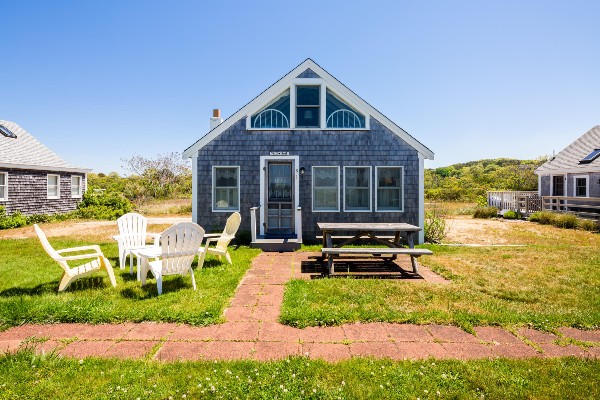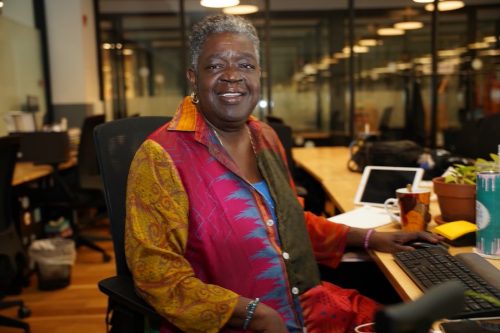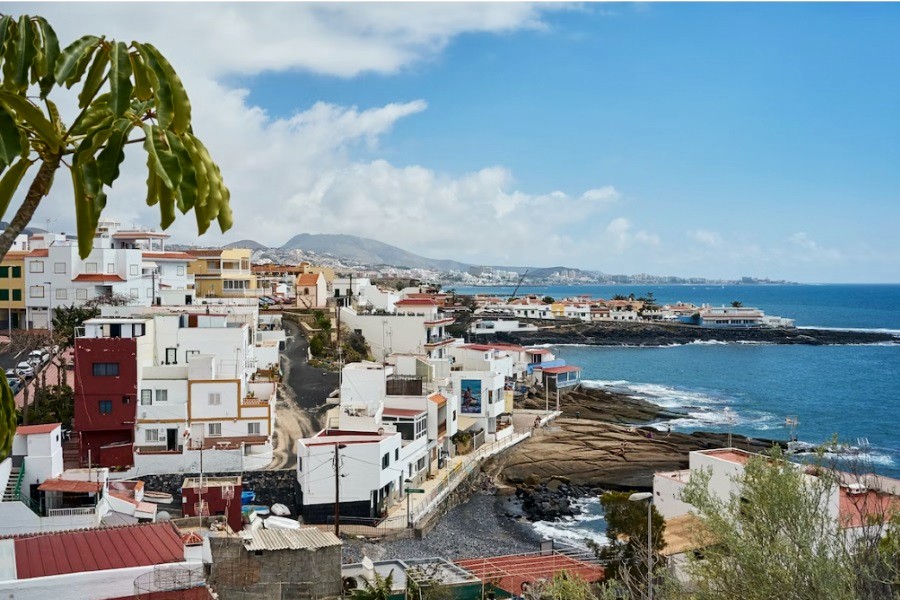
Boston, a city celebrated for its historical significance and cultural richness, is generally regarded as a safe destination for both residents and tourists.
When exploring the city’s diverse neighborhoods, from the charming cobblestone streets of Beacon Hill to the bustling areas of Downtown Crossing, it’s essential to be aware of various safety aspects. Like any major urban area, Boston presents its own unique safety challenges and precautions, which are important to understand for anyone planning a visit or considering a move to the city.
The city’s overall safety is bolstered by its active community and responsive law enforcement agencies. However, as with any city, there are variations in safety across different neighborhoods and times of day. Being informed about these nuances is key to enjoying all that Boston has to offer, from its historic landmarks and museums to its vibrant culinary scene and sporting events.
General Safety in Boston
Boston’s overall crime rate is lower than many other major cities in the United States, making it a relatively safe urban environment. According to a report from Bounce, Boston’s approach to urban safety involves a combination of active community engagement and robust policing strategies, which contribute to its lower crime rate compared to other major cities. However, like any city, there are areas and situations where caution is advised. It’s important for residents and visitors to stay aware of their surroundings, particularly at night or in less familiar neighborhoods.
In terms of specific safety measures, Bostonians and visitors are encouraged to take standard urban safety precautions. This includes being aware of one’s belongings, especially in crowded areas where pickpocketing can occur, and avoiding isolated areas after dark. The city’s well-lit and busy streets are generally safe, but like in any urban environment, risks can be present in quieter or less frequented areas.
Safety for Solo Travelers
For solo travelers, Boston offers a welcoming and safe environment. Many solo travelers, including women, find Boston to be accommodating and secure, with numerous activities and areas that cater to single travelers. According to Bounce, Boston ranks well in terms of safety for solo female travelers, with a low risk of being a victim of crime. When traveling alone, it’s advisable to stay in reputable hotels or accommodations in well-regarded neighborhoods, and to plan your travel routes ahead of time.
The city’s diverse neighborhoods, each with their unique character, are largely accessible and safe for solo explorers. However, as with any solo travel, it is prudent to avoid walking alone at night in less populated or poorly lit areas. Utilizing well-reviewed taxi services or ride-sharing options like Uber and Lyft, especially at night, can enhance safety for solo travelers.
Night Safety in Boston
Considering how safe Boston is at night, the city generally maintains a secure environment even after dark. The vibrant nightlife in areas like Fenway-Kenmore, the North End, and Downtown Crossing is usually bustling with activity, making these areas feel safe due to the presence of people and often, police patrols. However, it’s still wise to exercise caution, particularly if venturing into less crowded or dimly lit streets.
In terms of specific night safety tips, it’s advisable to stay in well-lit, populated areas and to avoid walking alone late at night, especially in unfamiliar neighborhoods. If you need to travel at night, using reliable taxi services or ride-sharing apps is recommended. For those driving, keeping car doors locked and parking in well-lit areas can prevent opportunistic crimes.
Safety in Public Transportation
Boston’s public transportation system, operated by the Massachusetts Bay Transportation Authority (MBTA), is generally safe and efficient. The MBTA, known locally as the “T,” provides comprehensive coverage of the city and its suburbs, making it a popular choice for both locals and visitors. As with any public transportation system, it’s important to remain alert and watchful of personal belongings, especially during rush hours when the trains and buses can get crowded.
In terms of specific tips for using public transport safely, passengers are advised to stay aware of their surroundings and keep their belongings secure. Avoiding isolated stops or stations late at night and staying in well-lit, populated areas while waiting for transport can enhance safety. For those preferring not to navigate the public transportation system, taxis and ride-sharing services provide a safe and convenient alternative, especially at night.
Safest Neighborhoods in Boston
According to some movers in Boston, Boston boasts several neighborhoods that are particularly well-regarded for their safety and livability. Neighborhoods like West Roxbury, Roslindale, and the North End are known for their low crime rates and family-friendly atmosphere. West Roxbury, for instance, is known for its residential feel and community-centric environment, making it a popular choice for families and those seeking a quieter urban experience.
The North End, often referred to as Boston’s Little Italy, is not only a culinary hotspot but also a safe area for tourists and residents alike. It’s characterized by its narrow streets, historic buildings, and a vibrant community. Roslindale is another safe choice, known for its low crime incidents and neighborhood charm, offering attractions like seasonal farmers’ markets and art markets.
Allston-Brighton is popular among younger crowds and students, featuring an artsy vibe with music venues and art galleries. It’s considered safe, especially in the busier areas with more foot traffic. Fenway-Kenmore, known for its bars, nightclubs, and proximity to Fenway Park, is generally safe but can get rowdy at night. It’s advisable to be in a group when exploring this area after dark.
Areas to Avoid in Boston
While Boston is largely a safe city, there are certain areas where crime rates are higher, and extra caution is advisable. Areas such as Roxbury, Mattapan, and parts of Dorchester are known to have higher crime rates compared to other parts of the city. It’s important for visitors and even residents to exercise caution in these areas, especially at night.
While these areas have their own cultural and historical significance, it’s advised to be more vigilant, particularly after dark. Avoid walking alone at night in these neighborhoods and stay in well-lit, populated areas. If visiting these areas, doing so during daylight hours and in groups can enhance safety.
Safety for Outdoor Activities
Outdoor activities in Boston, like hiking and hunting, are generally considered safe. Authorities provide guidelines to ensure safety during such activities, emphasizing the importance of being prepared and aware of one’s surroundings. It’s advised to follow all safety instructions provided, avoid alcohol consumption during these activities, and always use a map while hiking to prevent getting lost.
During the COVID-19 pandemic, Boston implemented specific guidelines for outdoor activities to ensure public health and safety. These included social distancing measures and mask mandates in public spaces. Although some restrictions have eased, it’s still advisable to stay informed about any current health guidelines when planning outdoor activities in Boston.
Hotel Safety in Boston
For a safe and comfortable stay, Boston offers a range of hotels in various neighborhoods known for their safety and convenience. Hotels in areas like the North End, West Roxbury, and Roslindale are popular choices among visitors looking for a secure environment. It’s always a good idea to read reviews and research the location of the hotel to ensure it’s in a safe area and provides the necessary security measures.
When staying in a hotel, guests are advised to use the safety features provided, such as room safes and door locks, and to be cautious when sharing personal information with strangers. Booking hotels through reputable platforms and making reservations in advance, especially during peak tourist seasons, can also enhance the safety and convenience of your stay.
Emergency Services in Boston
In case of an emergency, the primary contact number in Boston is 911. This connects callers to a dispatcher who can send the appropriate emergency services, whether it’s police, fire, or medical assistance. The Boston Police Department, known for its long history of community service, plays a crucial role in maintaining the city’s safety. With a force of over 2,144 sworn officers, the BPD is committed to community policing and building trust with the residents they serve.
The BPD offers various programs and initiatives focused on crime prevention and safety education. These include community service offices providing crime prevention tips and safety presentations. It’s advisable for visitors to keep a list of emergency numbers, including the local police station, and the contact information for their country’s embassy if traveling from abroad.
Boston Crime Rate and Statistics
The crime scenario in Boston presents a complex picture. In 2020, the city’s crime rate was indexed at 258 by City-Data.com, placing it around the average for U.S. cities. However, this rate was higher than in 83.4% of U.S. cities, indicating a significant crime presence compared to many other locations in the nation.
Notably, there was no change in the crime rate from 2019 to 2020, but the number of homicides increased to 58, which was 16 more than the previous year. Over the past five years, Boston has witnessed a decline in violent crime and a decrease in property crime, suggesting some improvement in overall safety.
When compared to other communities across America, Boston’s crime rate is considerably higher. With 25 crimes per thousand residents, the city’s crime rate places it in a more precarious position than many smaller communities, though it’s not among the highest. The likelihood of falling victim to either violent or property crime in Boston is 1 in 41, based on FBI data. This rate is substantially higher than 98% of all other cities and towns in Massachusetts, irrespective of their size.
However, looking at Boston in the context of other cities with similar population sizes, the picture shifts. Boston’s crime rate is noticeably lower than the average for similarly sized cities across America. This suggests that, among its peers in terms of population, Boston is relatively safer.
Focusing on specific types of crime, Boston’s rate of violent crime is particularly high, even when compared to communities of all sizes, both large and small. Violent crimes in this analysis include offenses like rape, murder, armed robbery, and aggravated assault. The likelihood of becoming a victim of violent crime in Boston is approximately 1 in 166.
Property crime in Boston also presents a significant concern. With a rate of 19 incidents per thousand population, the city has an above-average chance of property crime compared to other communities in America, encompassing all population sizes. Property crimes include motor vehicle theft, arson, larceny, and burglary. In Boston, the chance of becoming a victim of any of these property crimes is 1 in 54.
This multifaceted view of Boston’s crime rates reveals a city that, while facing challenges, shows varying degrees of safety depending on the type of crime and the comparative population size of the area.
Tourist Safety in Boston
Tourists in Boston generally find the city to be a welcoming and safe and secure place to visit. The city’s major tourist areas are typically well-patrolled and secure. However, as with any popular tourist destination, visitors should be mindful of pickpockets and scams, especially in crowded places like Quincy Market or during popular events. Tourist attractions such as The Museum of Science and historic sites are generally safe to explore, and the city offers services like luggage storage for convenience and safety.
When it comes to tourist safety, it’s important to stay informed about local laws and customs. Tourists are advised to keep a copy of their important documents, such as passports and travel insurance, in a safe place. Staying aware of one’s surroundings, avoiding excessive alcohol consumption, and being cautious when using ATMs in less crowded areas can also help ensure a safe visit to Boston.
Cultural and Historical Context
Boston’s cultural and historical context plays a significant role in its overall safety. The city’s rich history, dating back to the founding of the United States, contributes to a strong sense of community and identity among its residents. This sense of community can have a positive impact on the city’s safety, as residents tend to look out for one another and take pride in their neighborhoods.
Understanding the historical trends in crime and safety in Boston can also provide valuable context for residents and visitors. The city has seen various changes in its safety landscape over the years, influenced by factors like economic shifts, urban development, and community policing efforts. Recognizing these historical factors can help in understanding the current safety dynamics of Boston.
Is Boston Safe?
In conclusion, Boston is a city that offers a relatively safe environment for its residents and visitors. With its lower-than-average crime rate, active community involvement, and robust law enforcement presence, the city has established itself as a secure urban area. Whether you are a solo traveler, a family on vacation, or a resident exploring different neighborhoods, understanding Boston’s safety landscape is crucial for a pleasant and secure experience.
By staying informed, exercising common sense, and taking appropriate precautions, one can enjoy all that Boston has to offer with peace of mind. From its historic sites and cultural attractions to its diverse neighborhoods and vibrant nightlife, Boston is a city that is safe and welcoming, provided that visitors and residents alike remain aware and engaged in their personal safety.
- How To Choose The Right Corporate Travel Management Provider For Your Business?
- How Having A Dog Can Enhance Your Overall Mental Health
- 10 Tips To Maximize Your Air Conditioner’s Efficiency
- New Gear For Fall On The Rise For You And Your Harlem Home
- NYIC Launches ‘New York Proud’ Public Art Campaign Celebrating Immigrant Stories Across NYC
Become a Harlem Insider!
By submitting this form, you are consenting to receive marketing emails from: Harlem World Magazine, 2521 1/2 west 42nd street, Los Angeles, CA, 90008, https://www.harlemworldmagazine.com. You can revoke your consent to receive emails at any time by using the SafeUnsubscribe® link, found at the bottom of every email. Emails are serviced by Constant Contact









